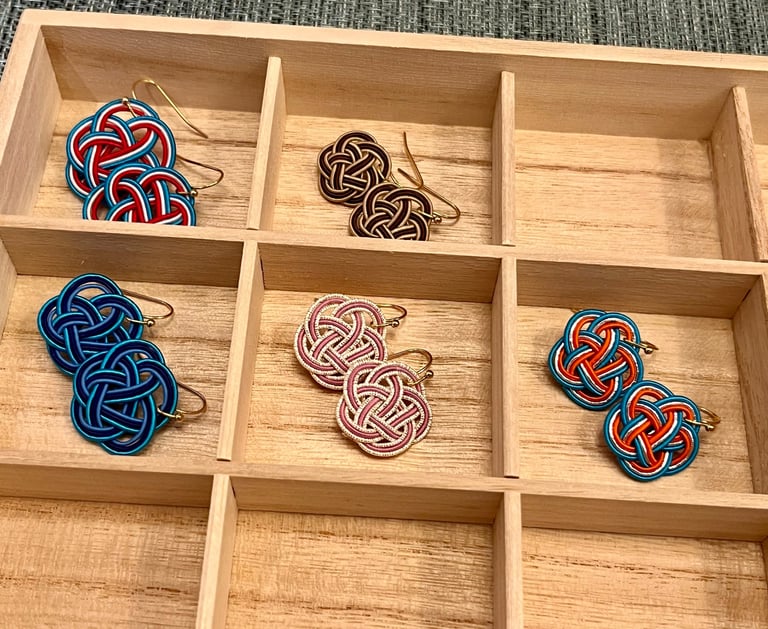Supreme Quality
Our products use the finest 100 % Japanese mizuhiki cords, featuring:
Iida mizuhiki – said to be the birthplace of mizuhiki, made from tightly twisted and starch-hardened washi paper, accounting for about 70 % of Japan's production.
Kyoto mizuhiki – celebrated for its rich and diverse color palette, available in hundreds of vibrant hues .
Enjoy the authentic beauty, superior texture, and pure Japanese craftsmanship embodied in these cords.
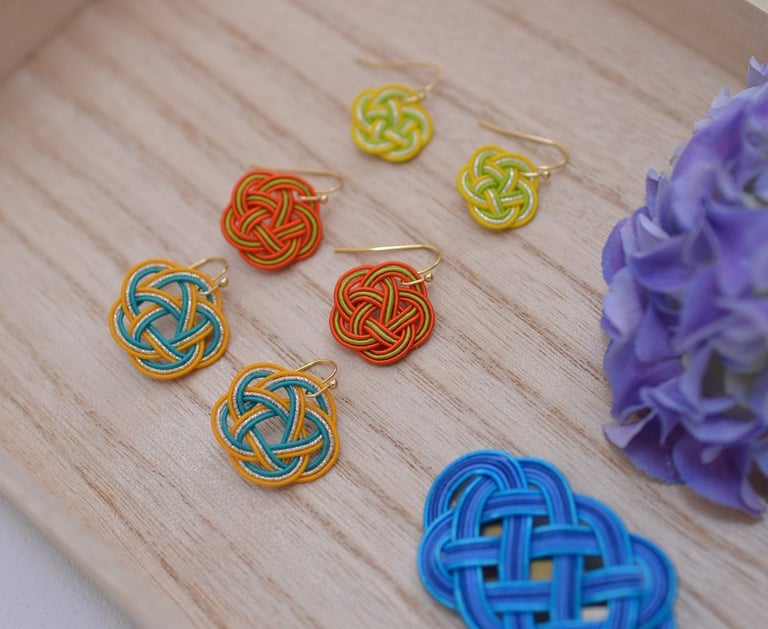

About the Brand
Kasane, founded in Luxembourg, blends traditional Japanese mizuhiki art with a modern European aesthetic.
Iri, a master of calligraphy and flower artistry, creates elegant pieces that layer colors and emotions, drawing inspiration from kasane no irome (layered colors). Kasane offers unique and custom mizuhiki creations for everyday life, corporate gifts, and special events, sharing this timeless Japanese beauty with the world.
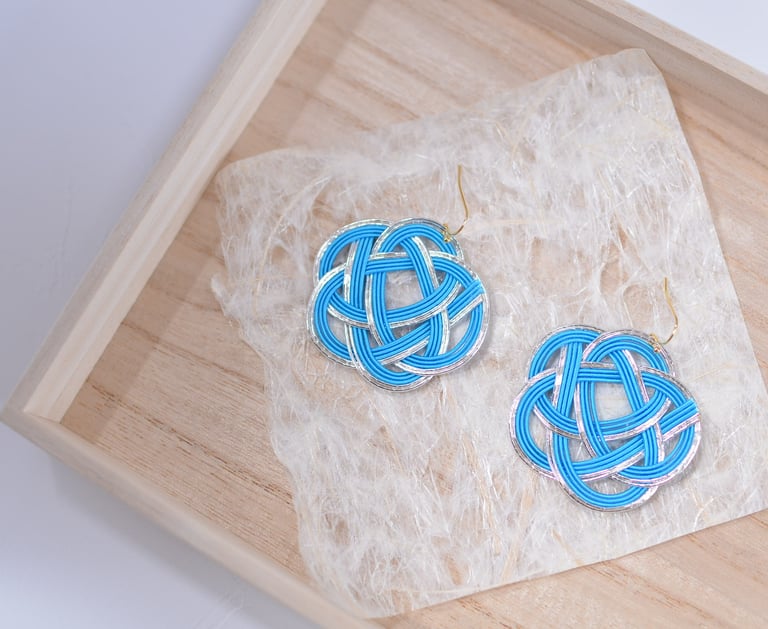

Meet Our Designer -Iri-
Iri, Mizuhiki Designer and Creative Director of Kasane, hails from Nagano, Japan, and is now based in Luxembourg.
Her creative path and passion for spreading Japanese traditions and culture spans nearly a decade in visual production for a major TV station in Tokyo, a stint as a research assistant in the Department of Japanese Studies at the University in Hong Kong — where she explored how Japanese culture and products are localized and, in the process, encountered the history of silk flowers that sparked her artistic curiosity — and a decade as a prolific floral designer in Japan with over 3,000 works and successful kumihimo accessories rooted in traditional craftsmanship.
In Luxembourg, she continues to share Japanese culture through calligraphy events and her innovative mizuhiki art. As a certified calligraphy master, she brings together the elegance of traditional writing and the creativity of contemporary design to introduce the richness of Japanese culture to a wider audience.
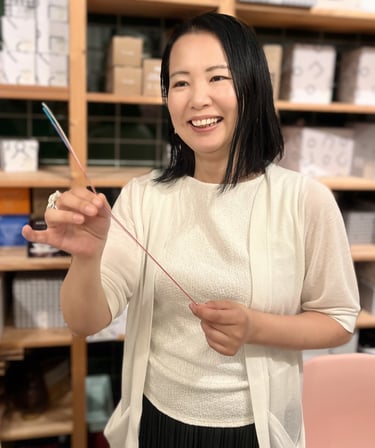

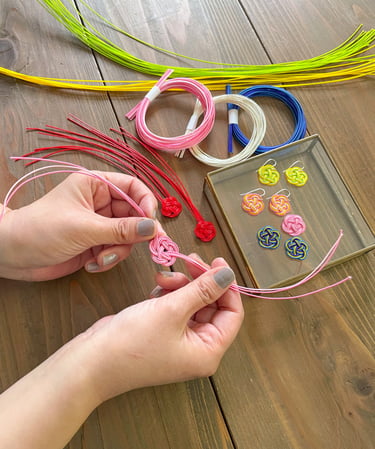

About Mizuhiki
A cornerstone of Japanese culture, Mizuhiki is a traditional art form made from twisted paper cords, carrying deep symbolic meaning beyond its beauty.
It graces sacred spaces, signifying purity; binds two lives in wedding ceremonies; and expresses wishes for prosperity during festive occasions. Through these uses, Mizuhiki embodies respect, blessings, and sacred energy, making it an invaluable part of Japanese heritage.
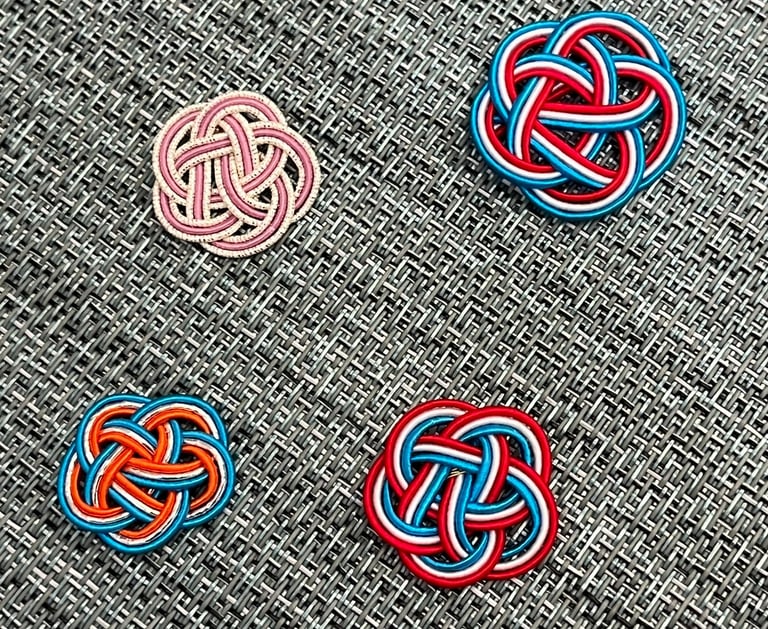

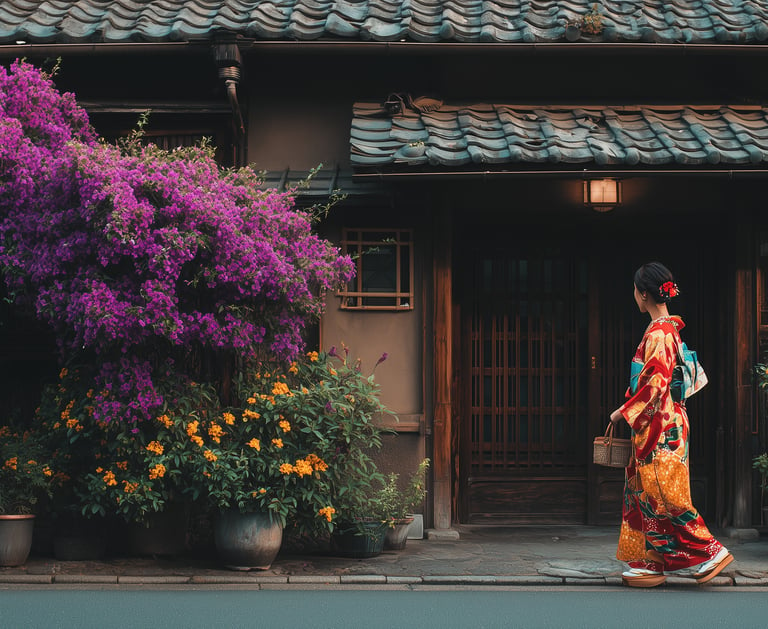

Tracing back over 1,400 years to Japan's Asuka period, Mizuhiki began as an imperial symbol of goodwill.
This enduring tradition continues to be a sacred part of Japanese life, seen at weddings, shrines, and New Year festivities. More than just decorative, each knot represents kizuna—the bonds between people—and conveys wishes for good fortune, happiness, and longevity, truly a message woven with heart and tradition.
In Japanese culture, a knot is never just a knot—it's a symbol. Mizuhiki knots embody kizuna, the deep connection of hearts, lives, and moments.
Each knot is a silent wish for strong, meaningful relationships, believed to bring good fortune, protection, happiness, prosperity, and peace. More than art, Mizuhiki is a heartfelt message, tied with care.
